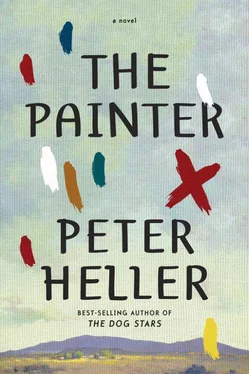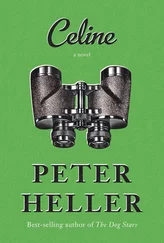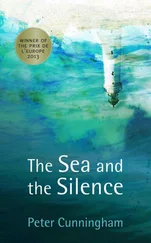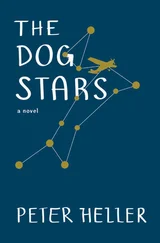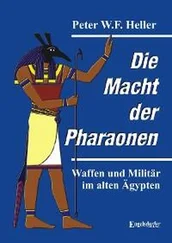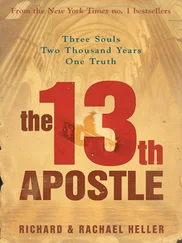Another jolt of panic. Had they found the rucksack? Or the gun? Had one of the hunters stepped forward as an eyewitness? Had they come to arrest me in front of all my hometown admirers? I didn’t think so.
“Go ahead, Jim,” Pim prompted. “Give us a word.”
I shook myself off like a dog.
“Thanks,” I said. “Thank you all for years of support. And friendship. I’m not sure what else to say.”
I couldn’t breathe. I needed to get out of here. My mouth felt like parchment. I looked on the table beside me for something to drink. There was nothing. I took a deep breath, let the pounding of the pulse in my ears subside. Did I? Think I was above the law? No. If anything, I always thought the law would probably have its way with me no matter how I chose to live. I said:
“I never thought I was above the law, above anybody, ever.” I looked at Sport. “The law is relentless. I—”
A gasp from the crowd. Pressure drop in the house, just like before a big thunderstorm.
There’s this scene in one of those asteroid movies, where the fleeing, hapless victims—where the fuck are they running? Where could they go, after all?—where they just turn and stand transfixed on a mountainside and watch the hurtling rock the size of like Australia falling out of the sky. That’s what the guests looked like. Like I was about to reach impact and maybe take them all with me. Some, have to hand it to them, were fascinated and incredulous at once. Not every day you get clobbered by a rock. Ask Dell.
Still couldn’t get a full breath. Suddenly I felt sad. Incredibly sad. I looked around the room, scanned face to face. So many faces I knew. I cleared my throat.
“Does anyone have some sparkling water or something?”
A young woman waiter in a short tux jacket and red bow tie came swiftly out of the crowd bearing a tray of tumblers garnished with limes, offered them up, and was gone. I took a long sip, set the glass on the table by the painting, took in the faces, the silence freighted and palpable as fog.
“You know I lost my daughter a few years ago. She was my best friend.”
I saw her again, stepping down the bank ahead of me, excited, holding up her rod, turning over stones at water’s edge. I thought how she would have loved this party. We would have fished together this afternoon and come straight from the river. She would have caught more fish. She would have teased me about it.
I saw her casting. The long living loops of line. Saw her step to the turn of the bend, look back, her face a question: Are you there? Are you coming?
I am here. Now. I—
“I didn’t protect her,” I said. “I let her go away.”
Silence.
“I can’t bring her back.”
I clawed at my collar. I needed cold fresh air.
“I’ve got to go. Is it too dark to go fishing?” I turned to the big window where a smoky harvest moon was breaking over the eastern ridge. Turned back.
“A moon. There’s a moon—I better try.”
A murmur filled the room like water. Some of the faces looked stricken. I heard someone whisper, He’s leaving? Already?
And another, hushed, It’s so sad. It’s awful .
I walked fast down the runner and out the door and out the drive and down the road. Sofia came right behind me. In a few minutes we were washed in headlights and Steve pulled over and picked us up and knew enough not to say a word. All the way to the hotel.
We did go fishing. We drove, the two of us, all the way to the Taos Box. While Sofia slept I fished in the cold and the dark, the stretch Alce and I used to fish together. I fished above the falls, and below in the big pool that silvered in the moonlight. I caught a few fighters and I fished until daybreak.
EPILOGUE

Not Too Scary
OIL ON CANVAS
20 X 30 INCHES
At the house in Paonia I put a cattle guard in the driveway where it crosses over the ditch from the county road, the road that goes to Willy’s. It’s one of those grates a car can drive over but an animal won’t cross. So the little roan wanders the whole property, all forty acres, drinks at the pond, leaves piles of manure on the little swimming beach, wanders by the house and looks in the west window when I am painting. No shit. She likes to watch me paint. Or maybe it’s the smell. Something. From where I was standing at the easel, I could see her now: head down past the dock, tugging at the brown wheatgrass. A little helmeted kestrel sat in the young cottonwood above the mare, waiting I guess for her to kick up a mouse. Behind the bird and the horse, up on the mountain, the swaths of aspen on the ridges were a shimmering yellow that did not have a name.
We’d been back almost two weeks. It was mid-October, into the first rifle season on elk, and once in a while, especially at dawn and dusk, the shots came off the mountain, sporadic and muffled by distance. I didn’t mind them. It was the sound of a changing season. Bob Reid and his son would be up there now. The first time I pulled in for gas he came around to my window and looked straight at me, way longer than most people would find comfortable. He was asking himself, I guess, what he felt about everything. Then he shook his head like, What the hell, and reached into the breast pocket of his shirt and pulled out his can of Skoal. He took a pinch and said, “Dip?” And I knew we would be okay.
Willy was glad to see me and helped me get the roan settled on my place, and helped me put in the grate. He had been designing his new bigger barn and was almost ready to break ground. He never mentioned the killing of Grant, which I was sure he’d read about, and he never mentioned either of the brothers again.
The cops weren’t so tactful. Sport called me the day we got back, to let me know, I guess, that he was keeping tabs on me and knew exactly what I was up to all the time. He didn’t have much to say except that the investigation was still very much open. He was all business. He said that any time it occurred to me to come down and add some new information it would probably be better for everyone in the long run. The long run. I never could, ever, wrap my head around that concept. I guess the short run always seemed hard enough.
The painting I was doing now was of two birds, redwings, sitting on the head of a scarecrow. A cloudy choppy sky, veils of rain, not virga. That’s all. The scarecrow looked resigned, like he had been handsome and imposing once, but was now in tatters and just happy to be outside looking over a stormy beautiful afternoon. I signed the canvas and took it down and leaned it against the wall. Sometimes when a painting is hot off the press I get it off the easel fast so I won’t be tempted to mess with it in passing.
“Nice,” she said from behind the counter.
Sofia had on hot mitts and she turned back and leaned down and pulled two bread tins out of the oven and set them clattering on the stove top and I heard the hinge of the oven door and the door bang shut.
“There.” She blew a strand of curly hair off her face. She said: “Bread. You want some hot, with honey?”
I shrugged. I felt uneasy. Sofia had moved right in. I was glad, mostly. There was not one thing wrong and that spring inside was coiled pretty tight. I had seen this version of domestic bliss before and it had never worked out. Maybe that was it. If I could just let things be what they are. I was trying, would try. It’s okay, Jim, to be content for once, you might even like it.
“Smells delicious.”
“And?”
“I’m going up the Sulphur, till dark,” I said. “Maybe we can have trout for dinner.”
Читать дальше
